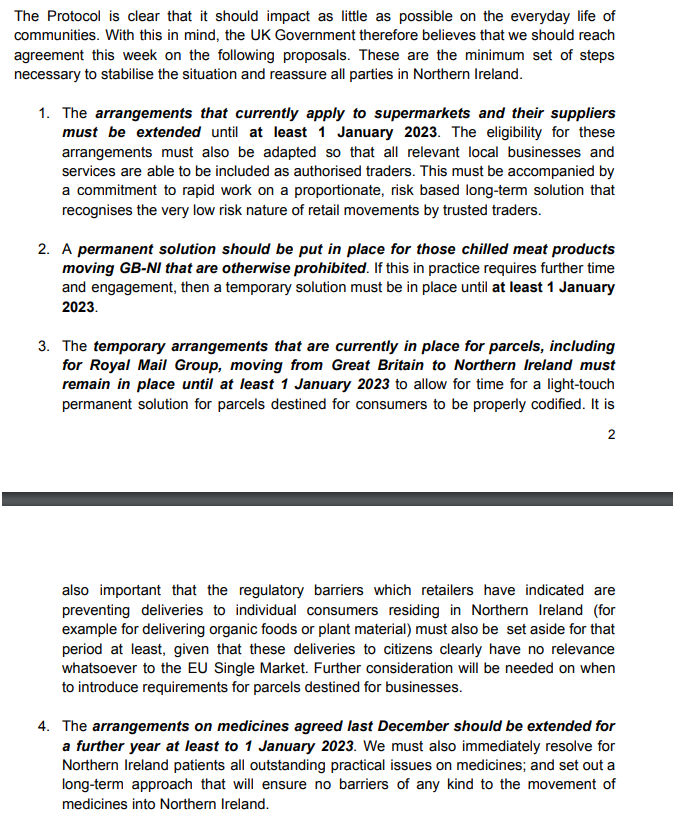
How does yesterday's UK announcement to unilateral extend grace periods compare to previous challenges to WA/TCA?
1/
1/
Well, like IMB and COM's mention of Art.16, this has not yet come into effect, so it's still more potential than actual
However
2/
However
2/
COM was looking to use a power it actually held under Art.16 (albeit not following proper procedure and with poor political judgement about acceptability)
UK in both IMB and now is seeking to overturn legal obligations under the treaties
3/
UK in both IMB and now is seeking to overturn legal obligations under the treaties
3/
WA did not allow UK to selectively disapply provisions of WA, just as TCA does not allow UK to make unilateral changes to provisions
As such, both cases challenge a basic tenet of international law: pacta sunt servanda
4/
As such, both cases challenge a basic tenet of international law: pacta sunt servanda
4/
(and yes, we did go through all this before)
5/
https://twitter.com/Usherwood/status/1306888617542004737?s=20
5/
In present case, as in IMB, if EU accepts UK action it not only opens door to further unpicking of treaties, but also creates precedent for all treaties (including EU treaties too, let's not forget)
Which is not going to be acceptable
6/
Which is not going to be acceptable
6/
So this is comparable to IMB in potential scale of effects
But it's possibly worse, mainly because it's getting so little attention right now
7/
But it's possibly worse, mainly because it's getting so little attention right now
7/
IMB was big news from the get-go, in the UK as in the EU
Yesterday's statement was buried here by the budget, and even the strong COM response last night doesn't seem to be generating much resonance yet
8/
Yesterday's statement was buried here by the budget, and even the strong COM response last night doesn't seem to be generating much resonance yet
8/
Because it looks like a much more 'common-sense' type of move (extend a grace period that already exists), might be harder for domestic opponents of move to whip up enthusiasm
Even if looming EP ratification might now be imperilled
9/
Even if looming EP ratification might now be imperilled
9/
So, yesterday matters and the pressure to solve it looks rather weaker than it did for IMB
/end
/end
Also, @StevePeers points out another important difference: yesterday doesn't need legislation, so no immediate check in Parliament
https://twitter.com/StevePeers/status/1367409383240589316?s=20
• • •
Missing some Tweet in this thread? You can try to
force a refresh








